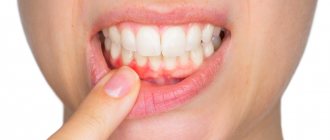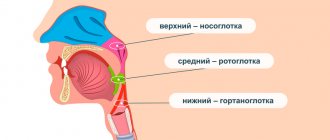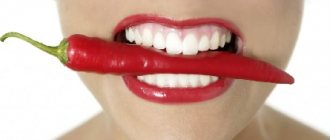A feeling of heaviness in the stomach, weakness, nausea, belching and bitterness in the mouth are symptoms familiar to everyone.
These unpleasant sensations cause pain, other discomfort and can ruin your whole day. Short-term attacks of nausea can be stopped with medications and folk remedies. If a bitter taste in the mouth, belching and vomiting do not stop for several days or weeks, there is reason to think about health problems.
Causes of bitterness in the mouth and nausea, associated symptoms
Nausea and bitterness in the mouth are common signs of disorders of the gastrointestinal tract and biliary tract. In case of serious deviations, the body “signals” that it is time to see a doctor. If vomiting, diarrhea, belching, general weakness, flatulence, dizziness, and elevated body temperature are added to the symptoms of an unpleasant taste and nausea, you should consult a physician or gastroenterologist.
The most common causes of nausea and bitterness in the mouth:
- stomach or duodenal ulcer;
- gastritis, gastroduodenitis;
- biliary dyskinesia;
- disturbances in intestinal function;
- poisoning of the body;
- hormonal disbalance;
- severe stress;
- diseases of the oral cavity – stomatitis, pharyngitis;
- the presence of parasites in the body.
Gastrointestinal diseases
A feeling of heaviness in the stomach and nausea in the morning can be the cause of overeating. Avoid fatty, spicy, salty and fried foods for a while, giving preference to vegetables, fruits and buckwheat porridge. Try not to eat in the evening after 19.00.
Nausea and heartburn are common signs of pregnancy. If a delay in the menstrual cycle is added to the unpleasant symptoms, it makes sense to contact a gynecologist and donate blood for hCG.
Bitterness in the mouth, accompanied by nausea or vomiting, is a sign of stagnation in the gallbladder. If the organ malfunctions, bile is released into the esophagus, causing discomfort. If a child or adult is vomiting bile, this is a sign of gastrointestinal dysfunction. The causes may be liver pathologies, diseases of the stomach and duodenum, colitis, pancreatitis, impaired intestinal motility, gastroduodenitis, and inflammation of the gallbladder. In this case, only a gastroenterologist can determine the cause and prescribe proper treatment.
Poisoning of the body
Alcohol poisoning is often accompanied by vomiting and diarrhea. In this case, drinking plenty of fluids and abstaining from eating during the day will come to the rescue. No additional treatment is required.
Nausea and bitter taste in the mouth can be caused by heavy metal poisoning. Mercury, lead, arsenic and cadmium are harmful substances that, when entering the body, quickly spread through the bloodstream, affecting tissues and organs. If you suspect heavy metal poisoning, consult a doctor immediately.
Poisoning of the body can be caused by uncontrolled use of medications. What to do if you have a bitter taste in your mouth after taking antibiotics and other medications? Immediately stop self-medication and seek help from a doctor.
Endocrine disorders
Hormonal imbalance can cause constant bitterness in the mouth. With excessive production of the hormones adrenaline and norepinephrine, a spasm of the muscles of the biliary tract occurs - bile is released into the esophagus, causing heartburn and bitterness. Hyper- or hypofunction of the thyroid gland provokes similar symptoms. In this case, the patient is prescribed a hormonal examination.
Oral diseases
Lack of oral hygiene can cause inflammation of the gums and mucous membranes. As a result, wounds and ulcers may appear on the surface of the tongue, tonsils, cheeks and gums, which emit an unpleasant odor and cause a bitter taste. In this case, bitterness in the mouth may be accompanied by a change in taste sensations. It is necessary to maintain good hygiene and brush your teeth twice a day to avoid unpleasant consequences.
Other reasons
Parasites in the body - Giardia, Ascaris, Trichinella and Toxocara - provoke disturbances in the gastrointestinal tract and, as a result, cause nausea, bitterness in the mouth and stool disorders. Parasites are transmitted to humans through dirty hands, unwashed vegetables and fruits, unboiled water and through contact with infected animals.
Short-term attacks of nausea and a bitter taste in the mouth can occur after severe stress. In this case, a walk in the fresh air, good sleep and engaging in your favorite hobby will help normalize the functioning of the nervous system.
Treatment methods
Basically, the treatment of bitterness in the mouth comes down to taking medications. The specialist selects complex therapy based on the results of tests and instrumental examinations. The gastroenterologist identifies one of three problems:
- Liver disorders. Means are prescribed to stabilize the operation of the “filter”,
- Digestive tract dysfunction. Drugs that affect the digestive system normalize the work
- Uncontrolled bile production. Eliminated by drugs that affect the level of secretion, for example, anticholinergics.
Diagnostic methods
Only a doctor can determine the cause of the symptoms described above. To make an accurate diagnosis and develop a therapeutic regimen, the doctor may prescribe the following procedures:
- examination of the skin and tongue, palpation of the abdomen;
- blood test for liver tests - ALT, AST, bilirubin;
- FGDS is a diagnostic procedure during which an endoscopist evaluates the functioning of the gastrointestinal tract, identifies foci of inflammation, and takes tissue for histological examination;
- Ultrasound of the abdominal organs - liver, pancreas, gallbladder and spleen;
- blood test for hormones;
- coprogram and general clinical blood test.
Prevention
To avoid discomfort, it is recommended, first of all, to make adjustments to your own diet and diet. So, it is better to give up sweets, baked goods, fatty and fried foods, alcohol, as well as products containing large amounts of dyes, preservatives and other synthetic additives. The daily menu should be filled with fiber, cereals, lean fish, meat, vegetable broths - such a diet will restore the “affected” functions of the gastrointestinal tract as soon as possible.
Since a bitter taste in the mouth often “haunts” smokers and those who abuse alcohol, giving up bad habits is also on the list of mandatory preventive measures. The daily fluid intake (pure water, natural juices, fresh compotes, fruit drinks) should be 2–2.5 liters. This will ensure healthy functioning of the digestive tract and have a positive effect on metabolism in general.
To combat nausea and bitterness, patients are prescribed a diet, symptomatic drug treatment, and, if indicated, surgery.
Timely treatment of chronic and acute diseases (primarily infectious lesions of the oral cavity, upper respiratory tract, gastrointestinal tract) will also prevent the occurrence of discomfort. Due to the fact that nausea and bitterness in the mouth can have not only physiological (overeating, pregnancy, intoxication), but also pathological causes (diseases of the liver and other digestive organs, dental problems), if discomfort persists for a long time, you should seek help from a doctor , be examined and undergo appropriate treatment.
Elimination of bitterness in the mouth and accompanying symptoms
What can cause nausea? What should you do to remove the unpleasant feeling? If going to the doctor in the near future is not possible, try to relieve unpleasant symptoms at home. It should be remembered that short-term relief of discomfort does not replace the need for treatment. Correct drug therapy is possible if the correct diagnosis is made.
General recommendations
The first thing to do if you complain of nausea is to adjust your diet. Try to adhere to the following recommendations:
- cooking methods - boiling, stewing or baking;
- you will have to give up fatty, spicy and salty foods for a while;
- you need to eat food often, in small portions;
- You cannot drink food with food, take liquid 40 minutes after lunch or dinner;
- last meal – 3-4 hours before bedtime;
- Avoid consumption of sweet soda, flour products, coffee and cocoa.
Citrus fruits will help quickly eliminate an attack of nausea and bitterness in the mouth. Slowly suck on a slice of orange or tangerine, the juice of which will reduce salivation, dilute the taste and block the urge to gag. Mint or menthol lozenges also help relieve nausea.
Drug therapy
If proper nutrition does not help, medications can help with the problem. The possibility of their use should be discussed with your doctor. For therapy prescribed:
- to eliminate heartburn and nausea - Almagel, Rennie, Gastal, Omez;
- antispasmodics - No-Shpu, Spazgan;
- against vomiting – Motilium, Domrid;
- hepatoprotectors for restoring liver function - Essentiale Forte, Phosphogliv.
Symptoms
Bitterness in the mouth can manifest itself in different ways, for example:
- after overeating and eating certain foods - indicates the reflux of bile into the esophagus and diseases of the bile ducts,
- aftertaste after taking medications means a disruption of the normal microflora, a negative effect on the liver and the destruction of beneficial bacteria,
- after sports training - speaks of liver pathologies.
Bitterness can occur at different times of the day, after physical activity and during the abuse of bad habits. Often the symptom is accompanied by nausea and vomiting, dizziness, heaviness in the side and abdominal pain, white coating on the tongue and a feeling of bloating, heartburn and belching, dry mouth. At the appointment, you need to inform the doctor in detail about each sign.
Drug therapy
Diagnosis of gastrointestinal diseases
Treatment of bitterness in the mouth and nausea, or rather the causes of their occurrence, is a complex measure, which invariably consists of:
- Diagnosis of the disease, determination of its pathogenesis and symptoms exhibited by the patient.
- Relief of unpleasant symptoms.
- The main course of treatment aimed at combating the cause of bitterness and nausea.
- Maintaining the obtained result.
- Prevention of gastrointestinal diseases.
Perhaps all of the described stages can be independently organized by the patient. The most difficult step, most likely, will be the first step, which is diagnosis. Its difficulty lies in the fact that in no case should mistakes be made during diagnosis.
Therefore, if, with the help of medical reference books with a detailed description of each gastrointestinal ailment, you were unable to determine the pathology specifically in your case, it is better not to spend a week on home therapy, but to go for treatment together with a gastroenterologist.
The remaining stages of therapy are relatively simple, since their organization directly depends on the patient’s existing disease. For general information purposes, we present a general list of drugs used to get rid of the symptoms being considered today:
- To relieve unpleasant symptoms (nausea, abdominal pain, bitter taste, etc.), various drugs are used, among the most used of which are: antiemetics (Domperidone), sorbents (Smecta, activated carbon) and antispasmodics (No-Shpa).
- To combat the cause of the pathology - antiemetic medications (for general gastrointestinal disorders), anti-inflammatory drugs (for inflammation in the stomach), antibacterial agents (for bacterial lesions) and so on.
Maintaining the results obtained and preventing them are usually carried out without the use of medications. Often it is enough to introduce a healthy lifestyle and a diet that excludes the intake of foods that are difficult for the gastrointestinal tract.
In case of a long-term stable condition after therapy, it is permissible to abandon the diet, diversifying the food with all products (naturally, without fanaticism).
Diagnostics
For your information! Sometimes bitterness in the mouth appears without other symptoms, and after hygiene procedures it disappears and does not appear again.
Most likely, in this case, the reason was precisely overeating or excessive alcohol consumption.
The presence of bitterness throughout the day, which does not disappear after brushing your teeth and appears the next day, should be a reason to consult a doctor.
To begin with, you can go to your local physician and tell about all your symptoms.
In this case, it is important to remember what was eaten on the eve of vomiting, which caused nausea and, possibly, to indicate the nature of the vomit (solid, liquid, with bile).
If a person knows for sure that bitterness and vomiting are associated with exacerbation of diseases of the gastrointestinal tract, you can immediately contact a gastroenterologist.
You should know! During the examination, the doctor prescribes a number of standard tests:
- general blood test, urine test;
- coprogram;
- blood biochemistry;
- Ultrasound;
- FGDS;
- radiography.
If the internal organs are healthy and no diseases have been identified, the person is sent to a cardiologist.
He conducts a survey, prescribes an ECG and EEG to confirm or refute vegetative-vascular dystonia.
After this, you can visit an otorhinolaryngologist and dentist . It is quite possible that the bitterness in the mouth was always present, but the person noticed it only during vomiting and connected the two symptoms together.
It is worth noting! Diseases of the teeth and gums may also cause a bitter taste in the mouth.
Treatment
Diseases of the stomach, liver, intestines, gall bladder and other internal organs are treated primarily with diet.
All fatty, fried foods, smoked foods, hot and spicy seasonings, canned food, sausages, heavy foods, alcohol, coffee and sparkling water are excluded from the diet.
Depending on the diagnosis, a therapeutic diet can be selected.
For gastritis or reflux disease, medications that reduce the acidity of gastric juice or antacids are prescribed .
It could be Rennie, Almagel.
antispasmodics (No-shpa, Spazmalgon), antiemetic medications (Motilium, Domrid), and antipyretics (Paracetamol, Ibuprofen) can be prescribed
How to remove? Smecta, Vikalin, Motoricum, and choleretic drugs help normalize the functioning of the stomach and intestines.
If an exacerbation of gastrointestinal diseases occurs due to stress, sedatives are prescribed (Motherwort, Valerian).
For diseases of the liver and gall bladder, drugs from the group of hepatoprotectors (Carsil, Essentiale Forte, Gepabene) and enzymes are prescribed .
In advanced cases, surgical methods are resorted to.
Auxiliary methods of treatment for identified diagnoses are physiotherapy and therapy using traditional recipes .
It is imperative to give up bad habits, smoking and drinking alcohol to prevent the condition from worsening and the disease progressing.
In case of dental diseases, teeth are removed or treated is performed . The diet is also adjusted.









